Back in November I blogged briefly about a natropath that I was seeing. It been about 6 weeks now that Ive been going and seeing her and I gotta tell ya, I starting to feel good.
She's treating me for alot of lifetime alements that I just took as the norm...now Im relising that I can feel better.
My kidneys are sick...not from alcahol etc but from stress *ugh* This is causing alot of issues healthwise. Ive always had achy kidneys but after a few years I honestly stopped noticing (except when it was realy bad...infection etc) now its on the road to getting better...Yay!
My energy levels are defently on the increase, my sleep is slowly improving and my overall mood is lifting, my headaches/migranes are easing. A whole lot of other things too...
I even got food poisening in that time that she succesfully helped me with.
She is an amazing woman. When I go there she is almost like a counciler. She askes me lots of questions and is helping me with alot of childhood "issues". I never thought I needed councelling before but now Im seeing the benifit in it.
Im learning to not only physicaly heal but emotionally heal too. Its great.
Here is some info I found on acupuncture from the acupuncture.com.au website....
Acupuncture is for almost everyone. The best thing is that you don't have to be sick to benefit.
It is said by its practitioners to be an effective form of preventive medicine because it helps detect and treat energy imbalances before they lead to disease.
It can also treat specific disorders to relieve symptoms and help reduce complications and recurrence or can be used for the maintenance treatment of a long term problem, to help reduce the need for medication and surgery.
How does Acupuncture work?
The goal of acupuncture is to establish healthy body function by restoring the natural circulation of energy, or life force known in Chinese medicine as Qi. (This is pronounced as "chee" and is also commonly spelt as ch'i, chi or ki).
Qi is a fundamental concept of everyday Chinese culture, most often defined as "air" or "breath" and, by extension, "life force" or "spiritual energy" that is part of everything that exists.
The pathways through which this vital energy flows are known as meridians.
According to Chinese medical tradition, theres constant interchange between the Qi of the body and the Qi of the environment: external Qi, which can be good or harmful. Within the body, Qi is said to perform several functions, one of which is protection against harmful Qi. If this protective Qi is strong, it acts as a defence. If it is weak, resistance is lowered and you may become ill.
Along the bodys meridians, there are over 500 acupuncture points. Good Qi is thought to be restored to these areas by stimulation for example with needles, although occasionally massage, herbs, or suction cups may be used on these points.
What conditions can Acupuncture & Traditional Chinese Medicine (TCM) treat?
The following is a comprehensive list of some of the conditions treatable by Acupuncture & TCM, as outlined by the World Health Organisation.
Diseases or disorders highlighted indicate that there is more in depth information available on this condition on Acupuncture.com.au
The diseases or disorders for which acupuncture therapy has been tested in controlled clinical trials reported in the recent literature can be classified into four categories as shown below.
1. Diseases for which acupuncture may be considered mainstream treatment: (Diseases, symptoms or conditions for which acupuncture has been proved through controlled trials-to be an effective treatment)
Adverse reactions to radiotherapy and/or chemotherapy
Allergic rhinitis (including hay fever)
Biliary colic
Depression (including depressive neurosis and depression following stroke)
Dysentery, acute bacillary
Dysmenorrhoea, primary
Epigastralgia, acute (in peptic ulcer, acute and chronic gastritis, and gastrospasm)
Facial Pain (including craniomandibular disorders)
Headache and Migraine (View detailed Acupuncture Q&A information)
Hypertension, essential
Hypotension, primary
Induction of labour
Knee Pain
Leukopenia
Low back Pain (View detailed Acupuncture Q&A information)
Malposition of fetus, correction of
Morning sickness
Nausea and vomiting
Neck Pain (View detailed Acupuncture Q&A information)
Pain in dentistry (including dental Pain and temporomandibular dysfunction)
Periarthritis of shoulder
Postoperative Pain
Renal colic
Rheumatoid arthritis
Sciatica
Sprain
Stroke
Tennis elbow
2. Diseases for which acupuncture is effective, but further proof is needed to include it into mainstream healthcare: (diseases, symptoms or conditions for which the therapeutic effect of acupuncture has been shown but for which further proof is needed)
Abdominal Pain (in acute gastroenteritis or due to gastrointestinal spasm)
Acne vulgaris
Alcohol dependence and detoxification
Bell's palsy
Bronchial asthma (View detailed Acupuncture Q&A information) (most effective in children and in patients without complicating diseases)
Cancer Pain
Cardiac neurosis
Cholecystitis, chronic, with acute exacerbation
Cholelithiasis
Competition stress syndrome
Craniocerebral injury, closed
Diabetes mellitus, non-insulin-dependent (View detailed Acupuncture Q&A information)
Earache
Epidemic haemorrhagic fever
Epistaxis, simple (without generalized or local disease)
Eye Pain due to subconjunctival injection
Female infertility (View detailed Acupuncture Q&A information)
Facial spasm
Female urethral syndrome
Fibromyalgia and fasciitis
Gastrokinetic disturbance
Gouty arthritis
Hepatitis B virus carrier status
Herpes zoster (human (alpha) herpesvirus 3)
Hyperlipaemia
Hypo-ovarianism
Insomnia
Labour Pain
Lactation, deficiency
Male sexual dysfunction, non-organic
Ménière disease
Neuralgia, post-herpetic
Neurodermatitis
Obesity
Opium, cocaine and heroin dependence
Osteoarthritis (View detailed Acupuncture Q&A information)
Pain due to endoscopic examination
Pain in thromboangiitis obliterans
Polycystic ovary syndrome (Stein-Leventhal syndrome)
Postextubation in children
Postoperative convalescence
Premenstrual syndrome (View detailed Acupuncture Q&A information)
Prostatitis, chronic
Pruritus
Radicular and pseudoradicular Pain syndrome
Raynaud syndrome, primary
Recurrent lower urinary-tract infection
Reflex sympathetic dystrophy
Retention of urine, traumatic
Schizophrenia
Sialism, drug-induced
Sjögren syndrome
Sore throat (including tonsillitis)
Spine Pain, acute
Stiff neck (View detailed Acupuncture Q&A information)
Temporomandibular joint dysfunction
Tietze syndrome
Tobacco dependence
Tourette syndrome
Ulcerative colitis, chronic
Urolithiasis
Vascular dementia
Whooping cough (pertussis)
3. Diseases for which acupuncture is worth trying, because the treatment by western medicine is difficult: (Diseases, symptoms or conditions for which there are only individual controlled trials reporting some therapeutic effects, but for which acupuncture is worth trying because treatment by conventional and other therapies is difficult)
Chloasma
Choroidopathy, central serous
Colour blindness
Deafness
Hypophrenia
Irritable colon syndrome
Neuropathic bladder in spinal cord injury
Pulmonary heart disease, chronic
Small airway obstruction
4. Diseases, symptoms or conditions for which acupuncture may be tried provided the practitioner has special modern medical knowledge and adequate monitoring equipment:
Breathlessness in chronic obstructive pulmonary disease
Coma
Convulsions in infants
Coronary heart disease (angina pectoris)
Diarrhoea in infants and young children
Encephalitis, viral, in children, late stage
Paralysis, progressive bulbar and pseudobulbar
The following are other conditions Acupuncture and Traditional Chinese Medicine can treat which are not classified using the above system.
Acute sinusitis
Common Cold
Acute bronchitis
Acute conjunctivitis
Central retinitis
Myopia (in children)
Cataract (without complications)
Toothache, post-extraction pain
Gingivitis
Acute and chronic pharyngitis
Spasms of esophagus and cardia
Hiccough
Gastroptosis
Acute and chronic gastritis
Gastric hyperacidity
Chronic duodenal ulcer (pain relief)
Acute duodenal ulcer (without complications)
Acute and chronic colitis
Acute bacillary dysentery
Constipation
Diarrhea
Paralytic ileus
Trigeminal neuralgia
Frozen shoulder
Pareses following a stroke
Sequelae of poliomyelitis (early stage, i.e., within six months)
Meniere's disease
Nocturnal enuresis
Intercostal neuralgia
Cervicobrachial syndrome
Ive always known about acupuncture but never realy thought about trying it...SOOOOOO glad I gave it ago. I recomend it for everything.
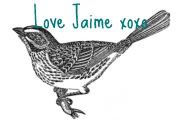


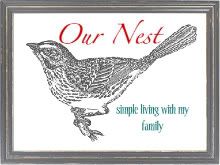


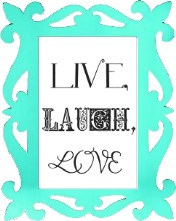
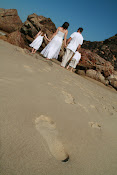






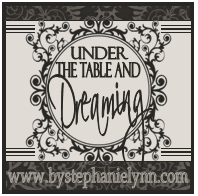







.png)



hOKcgkw~~60_12.jpg)


No comments:
Post a Comment